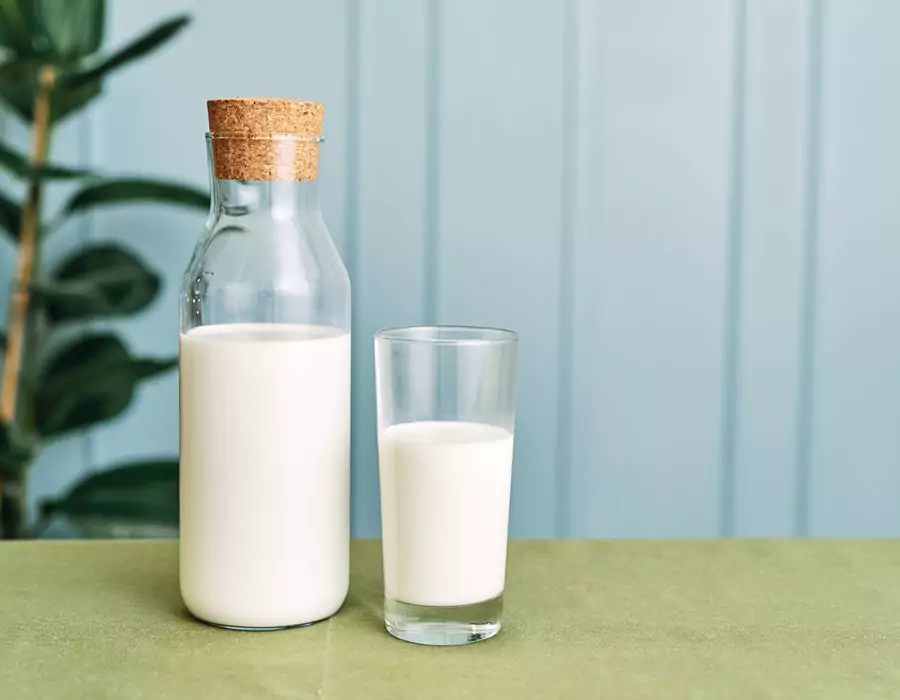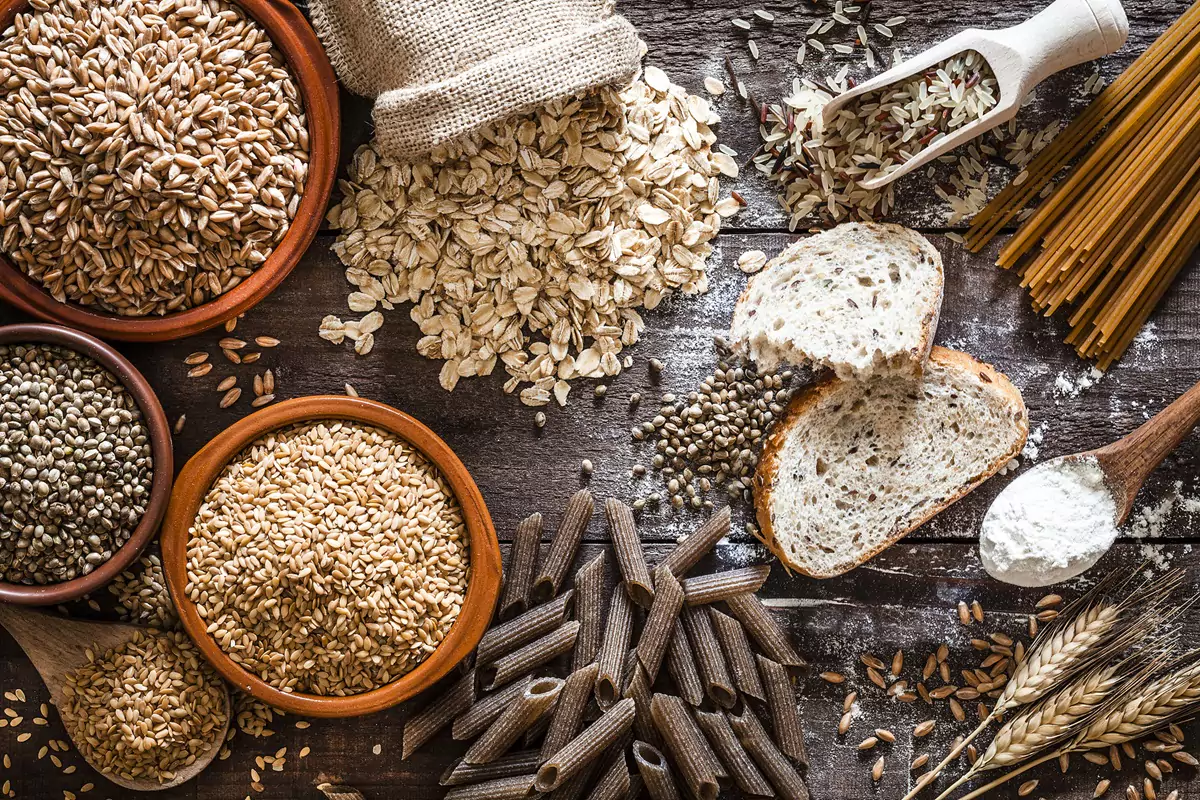
UP TO 40% OFF SITEWIDE






10 Best No Carb, Sugar Free Foods for a Healthy Diet


Comprehensive selection of no carbs, sugar free foods for a healthy diet while you navigate the intricacies of diabetes. Well, allow me to turn this dream into reality. In this presentation, we are poised to delve into an exquisite list of ten carb-free, sugar-free food items, perfectly tailored for individuals battling diabetes or striving to sustain optimal blood glucose levels.
Beef
When it comes to discussions around food that sits proudly on the pedestal of zero-carb, zero-sugar nutrition, beef emerges as a front-runner. Its credentials in this domain, although not entirely on par with the venerable egg, are nonetheless quite commendable. When we refer to beef here, it's important to clarify that we're speaking of pure, unadulterated beef. This is not a reference to processed variations or packaged renditions of beef, which often come adorned with additives and preservatives that could be harmful.
Instead, we underscore the value of fresh beef, a low-carb food source, teeming with an impressive concentration of iron, vitamin B12, and a plethora of other equally fulfilling nutrients. These nutrient-rich constituents of fresh beef don't merely add taste and variety to your meals; they perform significant roles, contributing to vital functions within your body. They aid in the production of blood cells, an essential process for overall health and wellbeing.
Moreover, they play a crucial role in managing chronic illnesses, a benefit especially significant for those wrestling with diabetes. The inclusion of fresh beef in your diet presents an opportunity to incorporate a valuable source of protein that is low in carbohydrates. Therefore, it reduces the potential for blood sugar spikes that are often seen with meals high in carbs. Furthermore, it serves as an excellent option for those aiming to maintain a balanced diet without compromising on taste or nutritional value.
In a world where dietary requirements are often at odds with our cravings, fresh beef stands as a beacon of hope. Its generous offerings in terms of essential nutrients and the assurance of zero carbs and zero sugars make it a true champion in the eyes of those endeavoring to control blood sugar levels. Whether it's a part of a sumptuous dinner or a quick lunch, fresh beef's versatility ensures that it can easily find a place on your plate, satisfying your taste buds while caring for your health.
Sardines
If you cast your net in search of nutritious, zero-carb, zero-sugar foods, you'd undoubtedly haul in a hefty catch of sardines. These little, oily fish are swimming with beneficial nutrients, making a significant splash in the health arena. Notably, sardines have zero carbohydrates and are generously endowed with vitamin B12, calcium, and selenium, essential elements for your body. Sardines are not merely nutritious; they are also a culinary delight.
They carry a unique flavor that can add an exciting twist to your meals, enriching your diet without the worry of unwanted carbohydrates or sugars. The unique aspect of sardines is that you can consume them whole, bones and all. It may sound unusual, but the bones of sardines are soft, edible, and pack a potent punch of calcium, contributing to your bone health.
If you haven't dabbled in the world of sardines, it's a venture worth embarking upon. Incorporating sardines into your diet isn't just a gastronomical adventure; it's a health investment, offering a multitude of nutrients without jeopardizing your blood sugar levels. Experiment with a few simple sardine-based recipes, and you may find yourself hooked on this little fish's hearty and healthful benefits.
Chicken
Moving from the aquatic realm into the poultry domain, let's introduce a global food superstar that needs little introduction - the chicken. Across the globe, from small farmhouses to grand dining halls, chicken's popularity is unmatched. But popularity isn't its only claim to fame; chicken is a powerhouse of nutrition, housing an array of nutrients vital to your body. In terms of macronutrients, chicken is a formidable source of protein, a critical element for body growth, tissue repair, and immune function.
If your dietary goal involves maintaining a low-carb, sugar-free regimen, chicken undoubtedly makes the cut. These feathered creatures yield a meat that contains absolutely zero carbohydrates or sugar, making them a guilt-free choice for those conscious of their blood sugar levels.
Chicken's charm lies in its versatility. It can be grilled, boiled, roasted, or fried and still retain its delicious flavor. Whether you're concocting a hearty chicken soup or preparing a simple grilled chicken salad, the opportunities to incorporate this zero-carb, zero-sugar food into your meals are nearly endless.
However, as with any food, moderation and preparation methods are crucial. Opt for skinless, lean cuts of chicken and ensure it's cooked healthily. Avoid battering and deep-frying, which can add unnecessary carbs and fats. Moreover, go easy on the sauces and dressings, as they often contain hidden sugars.
Catfish
Stepping into the spotlight as our next superfood devoid of carbs and sugar, we bring forth catfish. This aquatic culinary delight can be a fitting addition to your diet plan, especially if you're on a quest to remain free of carbohydrates and sugar.
However, the health benefits derived from catfish hinge heavily on the method by which it is prepared and consumed. The optimal ways to relish catfish while maintaining its healthful attributes include baking, grilling, or sautéing.
Prepared this way, catfish retains its natural nutrients while remaining devoid of detrimental additives. This cooking technique ensures you enjoy a guilt-free culinary experience, aligning perfectly with your health goals. However, a caveat to consider is the potential nutritional pitfalls when the preparation involves frying or battering the catfish. This method introduces unwanted elements into your meal.
The typically enticing, golden-brown coating of a fried or battered fish unfortunately brings along unhealthy fats and a substantial dose of sugar. This, in turn, can become a catalyst for chronic health conditions, something we all strive to steer clear from.
Thus, while catfish can be a delectable addition to your low-carb, no-sugar food repertoire, ensure that its preparation doesn't undermine its dietary benefits. By opting for healthier cooking methods, you can enjoy this flavorful fish while staying true to your nutritional needs.
Eggs
No discussion about low-carb, no-sugar foods would be complete without the humble, yet nutritionally rich, egg. The egg, in its simplest form - particularly when hard-boiled - exhibits negligible, if any, carbohydrate content. This is a belief that finds resonance amongst several nutritionists and scientists. However, the true virtue of eggs extends beyond being a no-carb, no-sugar food item.
They are replete with an array of beneficial nutrients that play a significant role in maintaining overall health, particularly as one ages or while managing diabetes. One of the essential benefits of eggs is their contribution to enhancing eyesight. This is an attribute that becomes increasingly important as we age.
Additionally, the nutrients found in eggs are believed to bolster memory, an aspect that can improve the quality of life and cognitive functioning. With such incredible health benefits, eggs truly deserve their place in our list of top no-carb, no-sugar foods. And the cherry on top? They can be prepared in myriad ways to suit your taste buds, offering a flavorful palette while adhering to your dietary restrictions.
Lamb
Pondering over the realm of nutrient-rich, no-carb foods, one might often overlook lamb. Not unlike its bovine counterpart, lamb can be, in certain respects, even more nutrient-dense than beef. This tender meat delicacy is teeming with essential nutrients, required for the proper functioning of the human body, all while being entirely free of carbohydrates. Lamb is notably affluent in vitamin B12 and iron, elements paramount for maintaining a healthy body. However, the nutritional prowess of lamb does not end here.
This meat houses an intriguing component, a fatty acid named conjugated linoleic acid. This particular fatty acid is of profound importance for our health, given its potential benefits for body composition and immune function.
So, the next time your diet demands a no-carb, no-sugar food, cast your thoughts towards lamb. This often underappreciated meat could well serve as an exciting alternative to your usual dietary routine, delivering significant health benefits.
Salmon
Transitioning to the aquatic realm of the culinary world, let's shed some light on an undeniable titan of healthy eating: salmon. For those who conscientiously monitor their health and harbor a deep love for seafood, the merits of this vibrant-hued fish are far from unknown. Despite being classified as a fatty fish, salmon's fat content should not deter you. On the contrary, it should be celebrated. These fats are primarily comprised of healthy fatty acids, ones that confer multiple health benefits upon consumption.
Salmon is a magnificent source of Omega-3 fatty acids, revered for their heart-healthy and anti-inflammatory properties. Salmon also excels in providing a considerable amount of vitamin B12, iodine, and vitamin B3, again with no carbohydrate content whatsoever. Thus, dining on salmon furnishes your body with a plethora of nutrients, each bringing along a host of health benefits, ranging from supporting brain health to boosting your immune system.
Considering its substantial nutritional profile and zero carb content, salmon stands out as an exceptional choice for those striving to manage blood sugar levels. Whether it's elegantly smoked atop a salad or grilled to perfection for a wholesome dinner, salmon is a versatile addition to your menu. Its rich flavor and abundant health benefits make it a superb option for those seeking nutritional wealth without the burden of carbohydrates and sugars.
Jerky
Think about jerky, a delectable snack made from an assortment of meats, meticulously cut and dried to perfection. Originating from low-carb, sugar-free ingredients, it could be your ideal answer when craving a bite while also wishing to steer clear of carbohydrates. Imagine crafting your very own jerky, made from your select cut of meat, prepared and cooked according to your unique taste. However, it's crucial to discern that not all jerky is created equal.
Packaged jerky, often found lining supermarket aisles, tends to be an amalgamation of various ingredients, and unfortunately, not all of them are beneficial. Certain versions of this snack may harbor hidden sugars or carbohydrates, particularly those that are intensely flavored or seasoned.
Therefore, vigilance is key when selecting processed jerkies. To experience jerky at its finest and healthiest, why not embrace the art of making your own? Begin with procuring your own meat, ensuring it is fresh and unprocessed. The next step is drying it, a process where you can infuse the meat with an array of the healthiest vegetables of your preference. This way, you transform a simple snack into a mouthwatering, healthful treat, a jerky that is undeniably delicious and beneficial, yet devoid of unnecessary carbs and sugars.
Broccoli
Venturing from the realm of protein-rich foods into the domain of vegetables, we encounter broccoli. This verdant cruciferous vegetable, although not entirely devoid of carbohydrates, contains them in such negligible quantities that it is virtually akin to being carb-free. The value of broccoli in the diabetic diet becomes more apparent when you consider its various preparation methods and its delicious taste, whether consumed raw or cooked.
Although broccoli is incredibly versatile when it comes to cooking methods, it provides maximum benefits when consumed raw. The fresh, slightly crunchy texture of raw broccoli makes it an excellent addition to salads or as a stand-alone snack, paired with a healthy dip. Raw broccoli ensures you receive all its nutritional goodness without any loss due to cooking. Brimming with an abundance of vitamin C and K, broccoli is a nutritional powerhouse.
Its high fiber content aids digestion and helps in maintaining a healthy gut, which can contribute to overall health and wellbeing. Furthermore, broccoli is laden with compounds proven to bolster your body's defense mechanism against diseases, including cancer. In essence, while it is true that broccoli does contain some carbs, it is the veritable treasure trove of nutrients, dietary fiber, and health-promoting compounds that makes this vegetable a commendable addition to any diet.
The paltry carb content of broccoli is far outweighed by its significant benefits, making it a crucial component of a balanced, low-carb diet. Consider incorporating both these foods into your diet. Homemade jerky provides a protein-rich, low-carb snack option that you can tailor to your specific tastes.
Simultaneously, broccoli, whether enjoyed raw in salads or cooked into various dishes, offers numerous health benefits along with its pleasing taste and texture. However, as we always emphasize, moderation is vital. Enjoy your homemade jerky and crunchy broccoli, but ensure you maintain a balanced diet with a variety of other nutrient-dense foods.
SugarMD Advance Glucose Support
Maintaining healthy blood sugar levels can be a challenge. From carby meals to snacks and even with all the effort, it’s still not enough. That’s where SugarMD Advanced Glucose Support comes in. Our blend of traditional Ayurvedic herbs helps regulate blood sugar levels, curbs cravings, supports weight loss, boosts metabolism and energy. Endorsed by endocrinologists, this unique formula of pure, potent herbs promotes overall blood sugar health. Ideal for both pre-diabetics and Type 2 diabetics.
Kale
In the realm of vegetables celebrated for their low carbohydrate content, kale warrants recognition, standing tall with its nutritional prowess. This leafy green shares the stage with broccoli, another renowned health-enhancing vegetable, yet outshines it when the spotlight turns to carbohydrate concentration. When juxtaposed in terms of carbohydrate content, broccoli, although healthful, reveals itself to contain quintuple the amount of carbs than kale within the same serving size.
This disparity positions kale as a more attractive choice for those aspiring to adhere to a low-carb diet without skimping on vital nutrients. Kale's prominence on the dining tables of health-conscious individuals isn't just a fad or happenstance. Its stature in the health food world comes from its robust nutritional profile, teeming with health-boosting nutrients, and its minimal carbohydrate content. In addition to being low-carb, kale boasts substantial amounts of dietary fiber, Vitamin C, and Vitamin K.
This nutrient-dense veggie also brings a robust offering of carotenoid antioxidants to the table, compounds known for their potential protective effects against various health conditions. The allure of kale extends beyond its nutrient composition. Its versatile nature allows it to be incorporated in various culinary creations, from salads and soups to smoothies and stir-fries, making it an easy addition to any meal. Now, kale isn't the sole champion in the arena of local foods with scant to no sugar content.
Several other foods available in your local grocery store or farmers' market share this distinction. These foods can play a pivotal role in maintaining your health, regulating your sugar levels, and even aiding in weight loss. The allure of these low-sugar foods lies not only in their health benefits but also in their taste. They provide a delightful culinary experience, satisfying your taste buds without jeopardizing your health goals. Incorporating these foods into your daily diet can allow you to explore a wide range of flavors while reaping the benefits of a nutritious and balanced diet.
In summary, kale stands out as a remarkable food choice for those seeking a low-carb, nutritious diet. Its nutritional profile, coupled with its low carbohydrate content, makes it an ideal addition to your meals. However, kale is just the tip of the iceberg. There's a whole world of low-carb, low-sugar foods out there, ready to be explored and enjoyed. Their incorporation in your diet can aid in weight loss, help regulate blood sugar levels, and promote overall health without sacrificing taste or satisfaction.
Conclusion
To those navigating the path of health-conscious eating, remember that balance is key. A diet abundant in low-carb vegetables like kale, supplemented by other nutritious, low-sugar foods, can bring you closer to achieving your health goals. However, any dietary modifications should be made considering individual nutritional requirements and in consultation with a healthcare provider. Enjoy the journey to health and wellness, one delicious, low-carb bite at a time.
For those looking to enhance their low-carb, sugar-free diet, incorporating products like Ceylon Cinnamon can help support blood sugar management naturally. If you’re focused on maintaining healthy glucose levels, Glucose Defense offers essential nutrients to help regulate your body’s sugar response. Additionally, Berberine 1200mg is an excellent supplement to support both blood sugar and metabolic health, making it an ideal companion for your healthy lifestyle.
About The Author
Meet Dr. Ahmet Ergin a highly skilled and dedicated endocrinologist with a passion for diabetes care. Dr. Ergin earned his medical degree with honors from Marmara University in Istanbul. He completed internal medicine residency and endocrinology fellowship at Cleveland Clinic.
Dr. Ergin is board-certified in Internal Medicine, Endocrinology, Diabetes, and Metabolism due to his vast medical expertise. He's a certified diabetes educator, author of "The Ultimate Diabetes Book," and founder of "the SugarMD YouTube channel." Dr. Ergin offers exceptional diabetes care to his patients in Port Saint Lucie, FL, helping them manage effectively.
Disclaimer: These statements have not been evaluated by the Food and Drug Administration. Information on this website isn’t intended to treat, cure or prevent any disease. Discuss with your doctor and do not self-treat.
Written By Dr. Ahmet Ergin
466 total articles
Meet Dr. Ahmet Ergin, a highly skilled and dedicated endocrinologist with a passion for diabetes care. Dr. Ergin earned his medical degree with honors from Marmara University in Istanbul. He completed internal medicine residency and endocrinology fellowship at Cleveland Clinic. Dr. Ergin is board-certified in Internal Medicine, Endocrinology, Diabetes, and Metabolism due to his vast medical expertise. He's a certified diabetes educator, author of “The Ultimate Diabetes Book,” and founder of “the SugarMD YouTube channel.” Dr. Ergin offers exceptional diabetes care to his patients in Port Saint Lucie, FL, helping them manage effectively. For a closer look into his insights and experiences, connect with Dr. Ahmet Ergin on LinkedIn, Instagram, and YouTube.”
Disclaimer: These statements have not been evaluated by the Food and Drug Administration. Information on this website isn't intended to treat, cure or prevent any disease. Discuss with your doctor and do not self-treat.
Products















